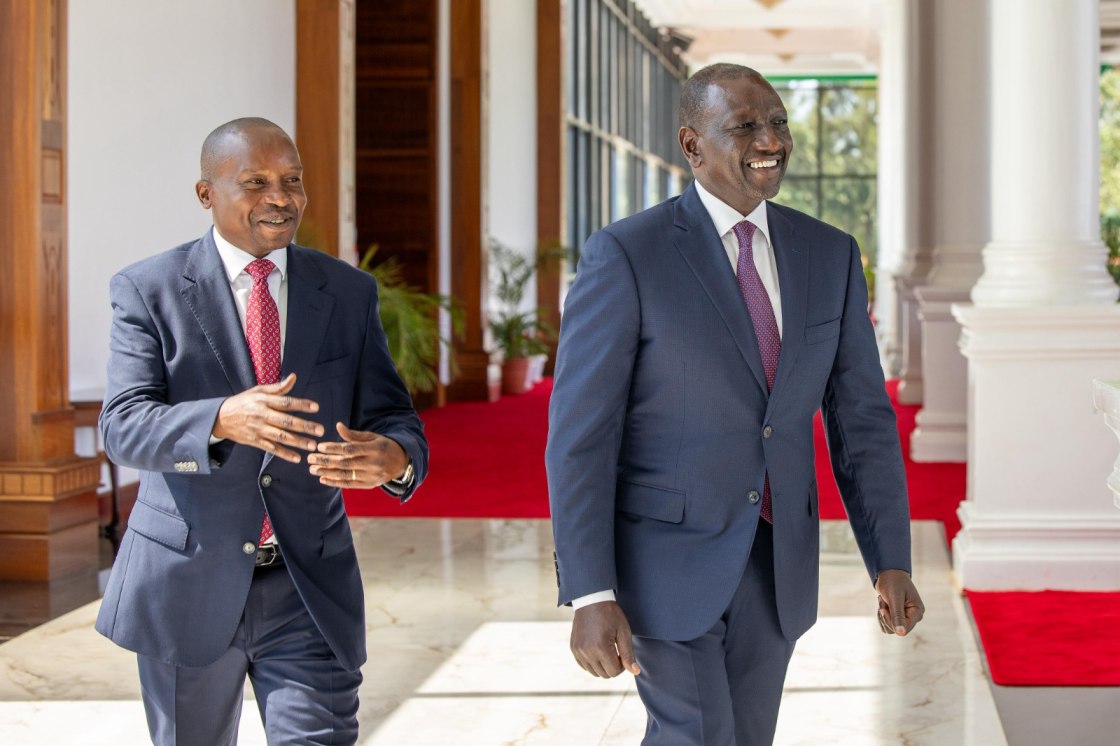Government reworks Sh4.3 trillion budget in fiscal reform push

The revised budget will be presented to Parliament once changes are finalized.
Kenya’s Cabinet has taken fresh steps to cut government spending, starting with a revision of the Sh4.3 trillion national budget as part of new austerity efforts to reduce debt and improve fiscal stability.
Meeting under the leadership of President William Ruto on Tuesday, the Cabinet directed all ministries to coordinate with the National Treasury to determine what adjustments are needed.
The revised budget will be presented to Parliament once changes are finalised.
The Cabinet statement described the changes as part of a wider reform to improve public financial management and create space for essential services.
"These changes are part of ‘broader austerity measures designed to strengthen fiscal discipline, reduce public debt vulnerabilities, and create the fiscal space necessary to deliver essential public goods and services,"' read the dispatch.
The planned budget revision is meant to reduce the fiscal deficit from 5.3 percent of GDP in 2023/24 to 4.5 percent in the next financial year.
The statement comes as the government moves forward with a series of reforms announced last July by President Ruto, aimed at reducing unnecessary expenses and streamlining operations across state agencies.
"Resulting in the elimination of their operational and maintenance costs, and their functions will be integrated into the respective line ministries. Staff currently employed by the affected corporations will be transferred to ministries and other state agencies," Ruto explained during the earlier announcement.
Under these reforms, at least 47 state corporations will be shut down, and their roles absorbed into parent ministries.
The plan is expected to ease the government’s wage bill and eliminate duplicated roles.
In a bid to control spending further, the hiring of Chief Administrative Secretaries has been suspended. President Ruto has also slashed the number of government advisers by 50 percent.
Other cuts include the removal of budget allocations for the Offices of the First Lady, the Second Lady, and the Spouse of the Prime Cabinet Secretary.
Confidential budgets in Executive offices have also been scrapped.
These actions reflect a shift in how the government plans to manage its finances, favouring targeted spending on core functions and eliminating unnecessary outlays.
While austerity measures often include raising taxes or cutting programmes, Kenya’s current approach leans heavily on reducing waste and reassigning roles to avoid job losses where possible.
The budget overhaul comes at a time when the country is under pressure to manage rising debt without disrupting essential services like health, education, and infrastructure.
By streamlining spending, cutting non-essential expenses, and pushing for better fiscal control, the government hopes to regain public confidence and avoid borrowing to fund regular operations.
With a revised budget and tighter controls in the pipeline, the administration now faces the challenge of delivering public services under a leaner fiscal framework.
